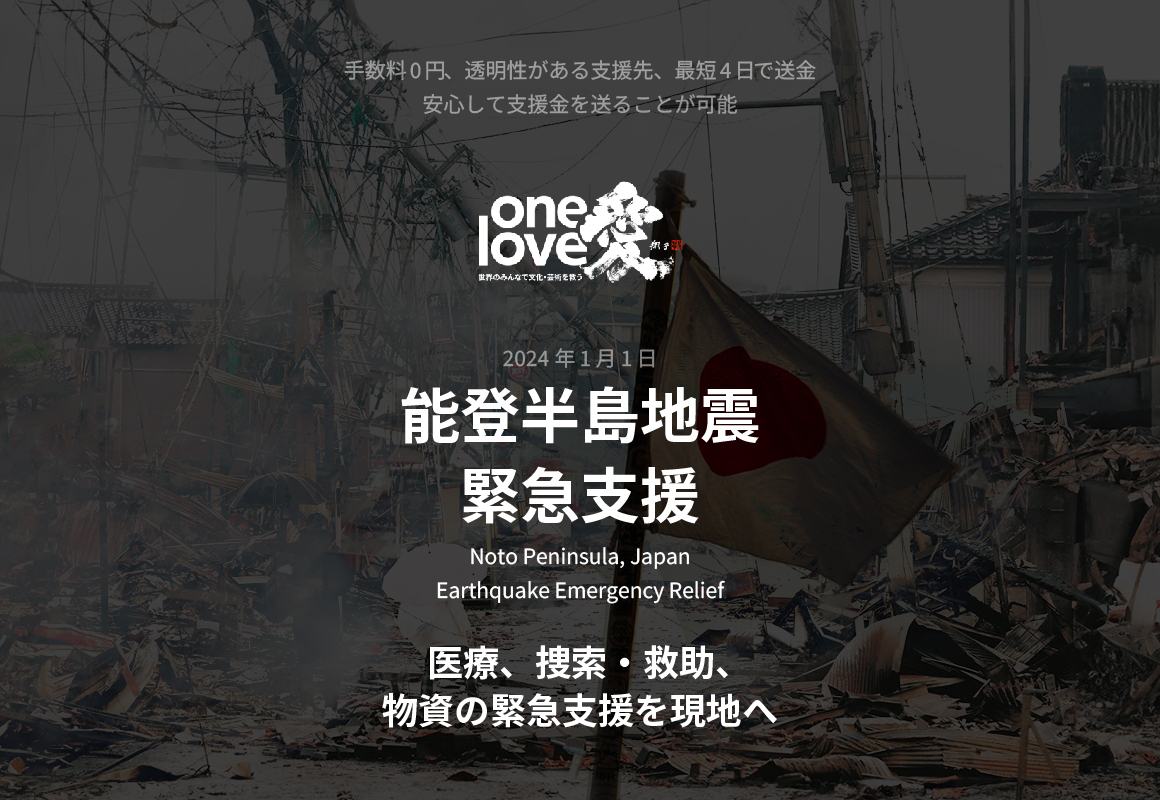The Aftermath of the Noto Peninsula Earthquake and How You Can Make a Difference
 Yllah Okin
Yllah OkinIn the early hours of January 2024, the Noto Peninsula, nestled on the western coast of Japan, experienced a devastating earthquake magnitude 7 that shook the region to its core. The aftermath of the seismic event has left communities grappling with the destruction of homes, infrastructure, and, most tragically, the loss of lives. As the affected areas begin the arduous task of recovery, the international community is called upon to stand in solidarity and support those in need.
The impact
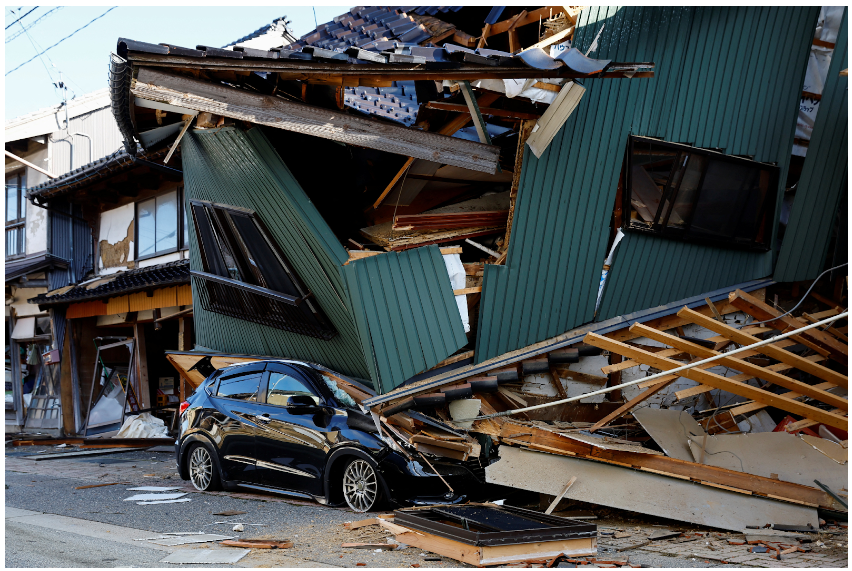
Image by Reuters
The earthquake caused widespread damage across the Noto Peninsula. Reports indicate that numerous homes have been reduced to rubble, leaving families displaced and in urgent need of shelter. Critical infrastructure, including roads and water supply systems, has suffered severe damage, hindering rescue and relief efforts. Mayor Masuhiro Izumiya of Suzu explained the extensive destruction, noting that "almost no houses" remain standing, with approximately 90% reduced to rubble.
The earthquake has claimed at least 84 lives, with 79 still missing as of the latest update. The destruction is particularly evident on the Noto Peninsula's western, more rural side, where tsunami alerts, fires, and collapsed buildings have further compounded the challenges faced by survivors.
Beyond the immediate casualties, more than 31,800 people are seeking refuge in shelters, while tens of thousands of homes have been lost. The pervasive disruptions include power outages, dry taps, and the challenge of rebuilding shattered lives.
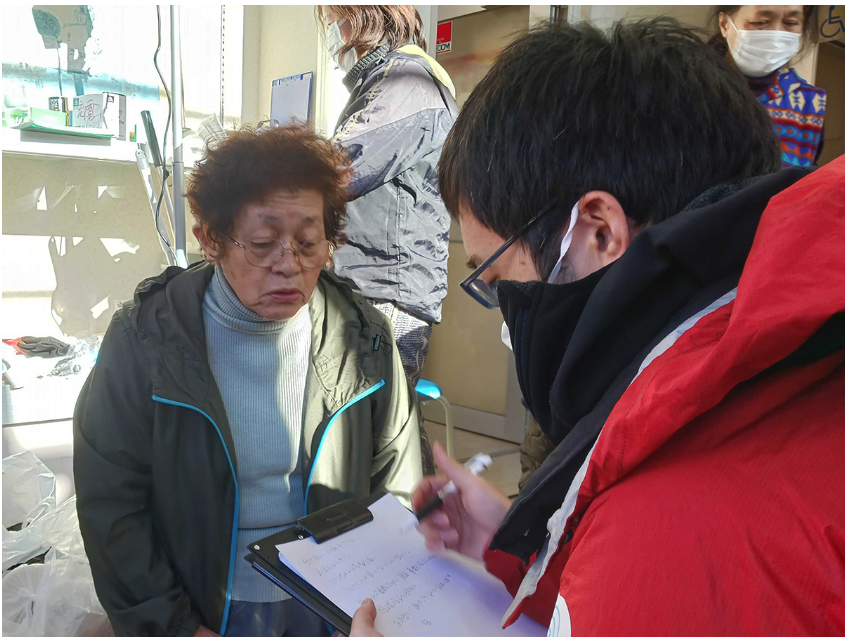
Image by AAR Japan
The loss of homes not only signifies a physical displacement but also the rupture of the emotional ties and memories associated with those spaces. Families are grappling with the trauma of losing loved ones, and children, now without homes, face an uncertain future.
The elderly, who are often more vulnerable in times of crisis, find themselves navigating the challenges of displacement and uncertainty. The disruption of essential services has left individuals struggling to meet basic needs, with the haunting question of when normalcy will return lingering in every conversation.
Minae Akiyama, who had traveled to Ishikawa prefecture from southern Japan to celebrate New Year's with her family, recounted the terror that struck as the ground beneath them began to shake. Sheltering under a table during the quake, she vividly described the heart-pounding moments of fear and the chaotic scramble for safety.
Two days after the quake, Akiyama, her family, and many others find themselves seeking refuge in shelters, where the hardships continue. Despite being unharmed physically, the trauma persists, amplified by frequent aftershocks that send tremors through both the makeshift shelters and the survivors' anxious bodies.
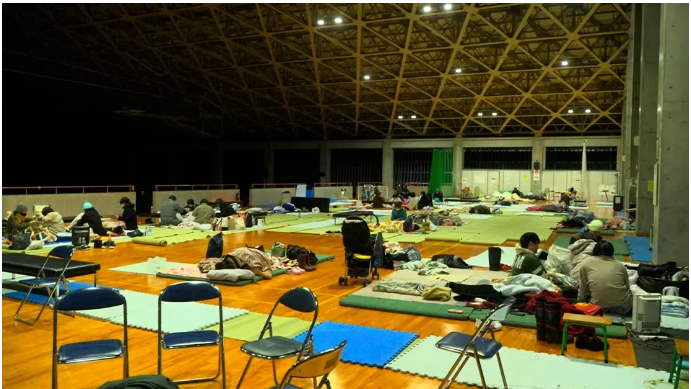
Image by CNN
Akiyama, speaking from a shelter in the city of Nanao, expressed to CNN the ongoing emotional toll: "Even now, the building feels like it's shaking. Whenever an aftershock happens, I think of the main quake, and my body trembles." The uncertainty and fear pervade the lives of those sheltering, as they await relief in the form of basic necessities and a semblance of normalcy.
Immediate Response
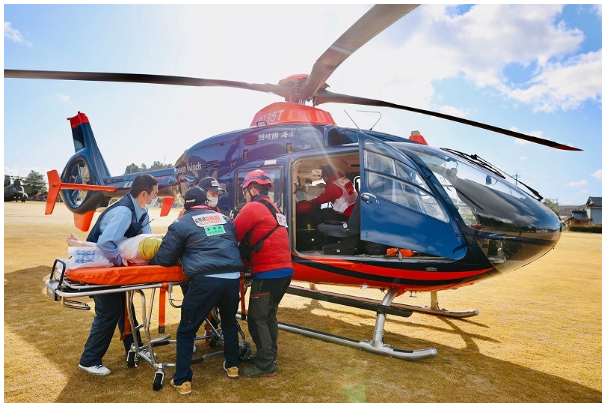
Image by Peacewind
Local authorities, with the assistance of national disaster response teams, have mobilized to provide emergency aid and rescue operations. Japan's Self-Defense Forces mobilized 4,600 troops for rescue and relief efforts. However, the task is exacerbated by the scarcity of power and water for tens of thousands of affected individuals. Landslides and blocked roads further complicate reaching those in need.
Logistical challenges persist and it’s harder to reach isolated communities. Limited transportation and severe winter conditions have delayed relief efforts, and many areas lack essentials like kerosene, blankets, and medical supplies. The elderly population, constituting a significant portion of evacuees, faces increased vulnerability to the harsh weather, raising concerns of hypothermia and the spread of illnesses.
The reconstruction process is expected to be prolonged, requiring sustained assistance. The devastation has affected not only infrastructure but also traditional businesses, such as sake breweries, creating uncertainty about rebuilding efforts.
While progress is being made, including the completion of temporary restoration at Noto Airport, challenges persist, and the January cold poses a major concern. The support of volunteers, aid organizations, and ongoing relief efforts are crucial for the affected communities on the Noto Peninsula.
The scale of the disaster demands additional support. The international community is now crucial in helping the affected region rebuild and recover.
How You Can Make a Difference
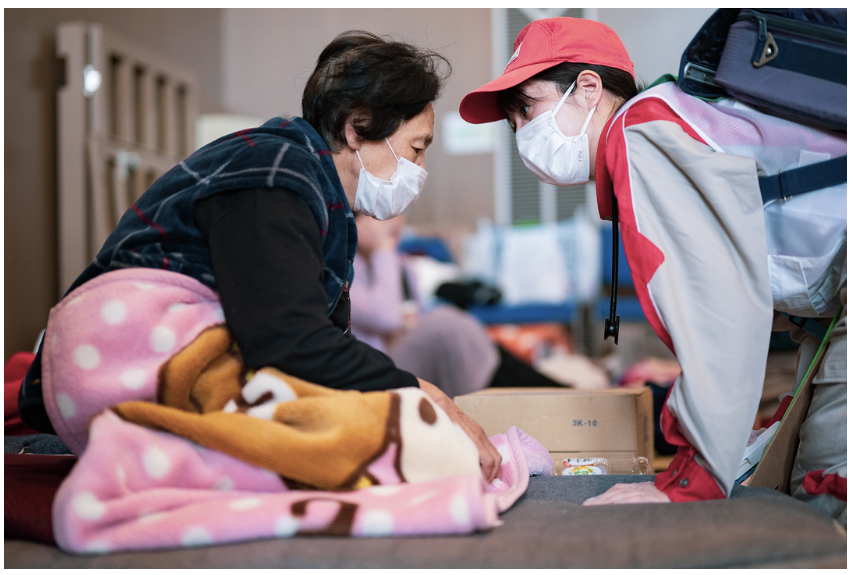
Image by the Japanese Red cross Society
Donations to Relief Organizations
Numerous reputable organizations are actively involved in providing immediate relief and long-term support to the earthquake victims.
Amongst these organizations, the NPO SPIN Project, initiator of the "One Love Project" that rallies global support for affected communities around the world, is providing assistance to the Noto region, collaborating with local heroes. The initiative is focused on coordinating search and rescue missions, medical aid, and emergency supplies.
Why donate on SPIN
Donating through the SPIN project offers a unique and transparent approach to crowdfunding, setting it apart from conventional platforms. The three key functionalities incorporated by SPIN - Transparency, Traceability, and Trustability - ensure that the destination of donated funds is clearly visible, fostering a sense of trust among supporters. In a landscape where the impact of donations is often uncertain, SPIN introduces the innovative concept of a "Social Impact Score," providing a numerical representation of a project's societal significance. This score is calculated based on the 17 goals of the Sustainable Development Goals (SDGs), offering donors a tangible metric to evaluate the project's contribution to shared value with society.
Furthermore, SPIN employs cutting-edge technologies like blockchain and AI to guarantee transparency and traceability in the utilization of funds. Through the "Transaction history" feature on the project page, donors can track and visualize precisely where their money has been allocated. The SPIN platform goes beyond mere financial support, emphasizing the importance of community engagement. With the introduction of a 'Trust Score,' users can evaluate each other based on global standard indicators, fostering a sense of accountability and reliability in the crowdfunding ecosystem. SPIN's commitment to transparency, traceability, and trustability enhances the overall giving experience, providing donors with the assurance that their contributions are making a positive and measurable impact on the projects they support.
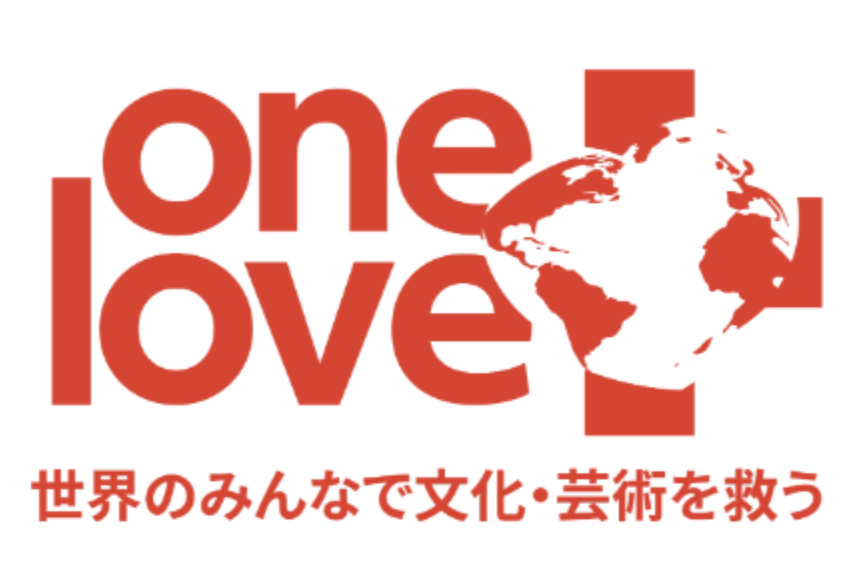
Spread Awareness
Use your voice and social media platforms to raise awareness about the situation in Noto Peninsula. Share information about donation drives, volunteer opportunities, and the ongoing recovery efforts. The more people are informed, the greater the potential for collective action.
The Noto Peninsula earthquake has left an indelible mark on the lives of those affected, but through collective action and compassion, we can make a difference. The road to recovery will be long, but with the support of individuals and communities worldwide, the people of Noto Peninsula can rebuild their lives and communities. Let us stand together in solidarity and show that in the face of tragedy, humanity's strength lies in its ability to come together and make a positive impact.
#HelpNoto, #OneLoveProject, and #DonateForChange.
(In cooperation with local relief organizations, the donations will serve to provide search and rescue support, medical assistance, and emergency supplies)
